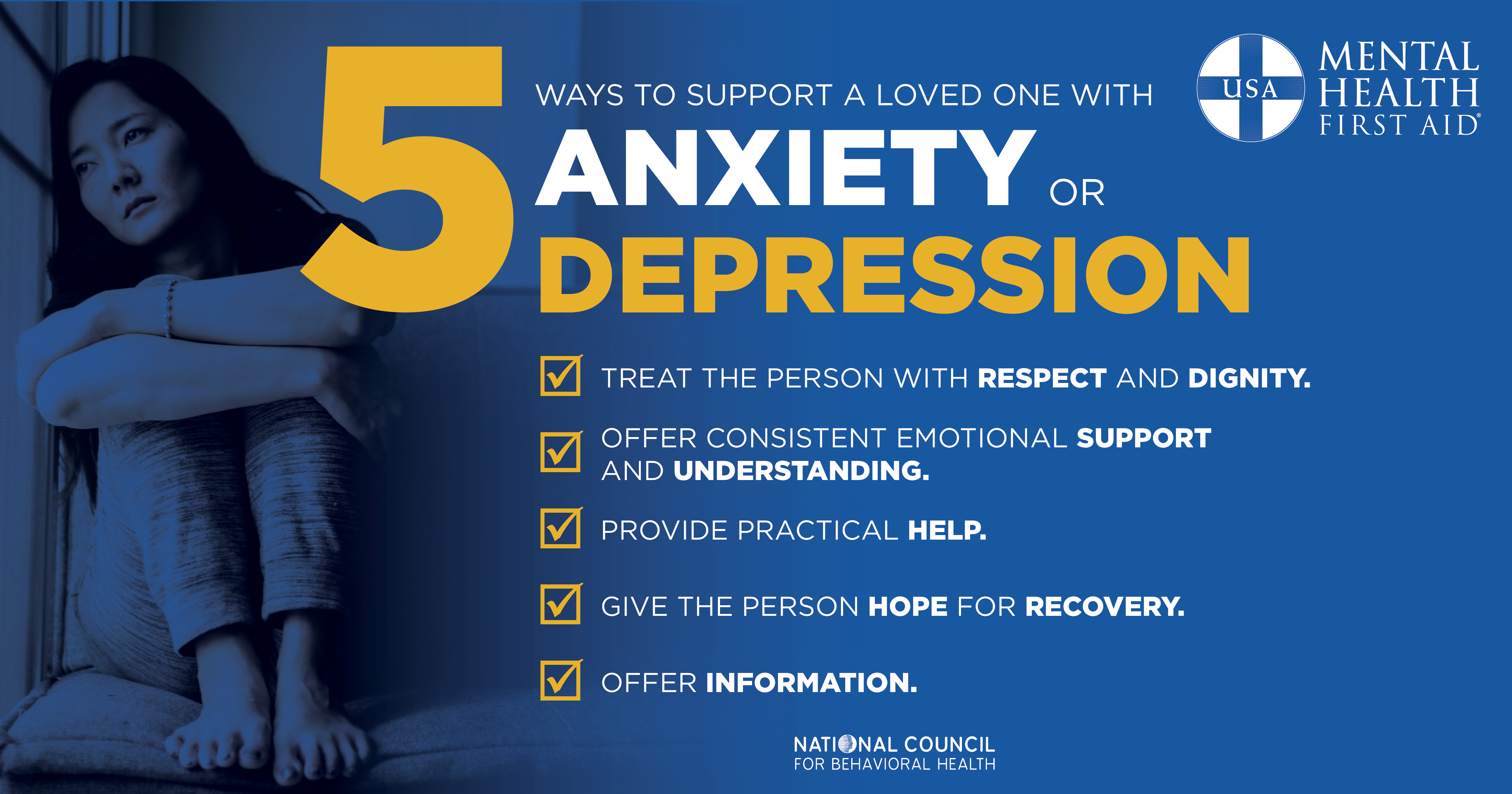If you or someone you care about feels overwhelmed with emotions like sadness, depression or anxiety, or like you want to harm yourself or others call 911.
You can also contact the Substance Abuse and Mental Health Services Administration’s (SAMHSA) Disaster Distress Helpline at 800-985-5990, the National Suicide Prevention Lifeline at 800-273-8255 or text MHFA to 741741 to talk to a Crisis Text Line counselor.
When your loved one is struggling, you want to do everything you can to help them. And sometimes, you don’t know what that is.
As a family member or friend, it can be hard to know what to do, how to act or what to say. But your support can have a positive impact on your loved one’s long-term mental health and well-being.
In fact, according to the Mental Health First Aid (MHFA) curriculum, there is evidence that support from individuals or mutual support groups may be helpful for people with depression and anxiety problems. It can also help people get the professional support they may need, as research shows people with mental illnesses are more likely to seek help if someone close to them suggests it.
That’s why it’s important that as a family member or friend, you can recognize when your loved one with a mental illness is struggling and how you can offer support.
Use these tips from the MHFA curriculum to support a loved one who may be struggling with anxiety or depression.
Still unsure about what to do next? Mental Health First Aid is here to help. Read these articles to learn more about ways you can #BeTheDifference for your loved ones when they need you most.

Get the latest MHFA blogs, news and updates delivered directly to your inbox so you never miss a post.
We use cookies to enhance your browsing experience, serve personalized ads or content, and analyze our traffic. By clicking "Accept All", you consent to our use of cookies.

Notifications